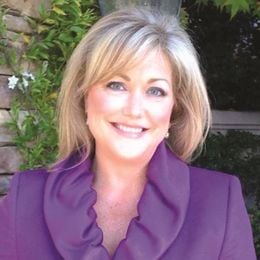Rosalynn Carter: A Pioneering Caregiving Advocate Says More Must Be Done
The former first lady reflects on her decades in the field
Rosalynn Carter said it first and she said it best: "There are only four kinds of people in the world: those who have been caregivers, those who are currently caregivers, those who will be caregivers, and those who will need caregivers."
The former first lady was the first public figure to truly champion the cause of those Americans — a group now numbering 65 million — who care for loved ones who are older, chronically ill or disabled, or live with special needs or mental illness.
(MORE: Ask for Help to Overcome the Grind of Caregiving)
I recently spoke with Carter about the strides that have been made in support of caregivers since she took up the cause, and her hopes for the future. As for her immediate future, she turns 85 on August 18 and plans to celebrate with a fly-fishing vacation with her husband.
Building the Caregiving Movement
“My work with caregiving grew out of my mental health work,” Carter says. “I had seen so many families burdened with caregiving for those with mental health issues. When we convened a meeting in the 1980s to discuss caregiving issues, it quickly spread from there.” Carter had reached out to organizations in a position to aid both family caregivers and health-care professionals like the American Heart Association, the American Lung Association and the American Medical Association. Although all of these groups agreed that caregiving was critical to the health of the patients they supported, none had any focused caregiver-support programs.
That was then. Over the past three decades, Carter has been encouraged by increased public support for caregivers, as represented by essential government programs such as the National Family Caregiver Support Program. Established in 2000, the program is administered by the Administration on Aging to provide states with grants to fund programs that help caregivers keep loved ones at home as long as possible.
Carter also cites the critical importance of programs such as the Lifespan Respite Care Act of 2006 in helping caregivers manage burnout. Thanks to the attention that has been given to the health of caregivers, today they can access respite services, training and other information through the ARCH National Respite Network and Resource Center.
“Of course we always want more, but it is wonderful to see how this has become a major, major issue,” Carter says. She believes that what she considers a global crisis will spur government, academia and the U.S. business sector to better understand the importance of caregivers to the nation and the economy, and to create more of the services and support they need.
She is also proud of the Rosalynn Carter Institute (RCI) for Caregiving at Georgia Southwestern State University, a program she established. It's still the nation's only university caregiving program. It uses evidence-based research to understand caregiver needs and translate its findings into solutions. RCI recently launched a satellite program in Korea and will continue to share its caregiving expertise and support internationally. The center, along with caregiving leaders and prominent groups in the field, released a report last spring called Averting the Caregiving Crisis. The report outlines strategies to "identify the unmet needs of family caregivers" and resolve what it calls "our nation’s caregiving crisis" by "re-envisioning support for family caregivers."
In the years ahead, Carter hopes to see wider availability of caregiver education programs and greater focus on supporting caregivers as they deal with the twin demons of grief and guilt. Her ultimate goal is to help caregivers on their path to self-care.
“The first thing we focused on back in the 1980s was caring for the caregivers,” she says. When she gave speeches on the topic, "Audience members came up to me crying, saying that this was the first time someone understood what they were going through."
(MORE: Building a Network to Look Out for Your Parents)
"People don’t want to admit that they are caregivers. They feel it is just their responsibility to care for a mother or a grandmother," Carter adds. Today's caregivers need to identify themselves as such and, in doing so, "recognize the need for help and be willing to receive help.”
A Life Dedicated to Caregiving
Carter knows better than most that this is easier said than done.
I asked her if she had identified herself as a caregiver when she cared for loved ones over the years. She laughed and admitted, "I didn’t realize I was a caregiver until I got involved in this work."
Her passion comes from a lifetime dedicated to understanding the emotional, physical and financial challenges that accompany caring for a loved one. She was 12 when her father was diagnosed with terminal leukemia, a battle he lost three months later. As the eldest child, she helped care for him and later, after his death, helped her mother care for Carter's three younger siblings.
She became a caregiver again in the years after she left the White House. All of President Carter’s three younger siblings succumbed to cancer, she says; his mother, Lillian, died of breast cancer in 1983 at age 85. Rosalynn helped care for several of these in-laws as well as her own mother, Allie Smith, who died in 2000 at age 94. In 2002, her younger brother had a stroke and moved closer to the Carters in Plains, Ga., so that she could help care for him.
“I have seen firsthand why it is important for families to have places to go to for help," she says. "It is so crucial."

Sherri Snelling is a corporate gerontologist, speaker, and consultant in aging and caregiving. She is the author of “Me Time Monday – The Weekly Wellness Plan to Find Balance and Joy for a Busy Life” and host of the "Caregiving Club On Air" podcast. Read More

